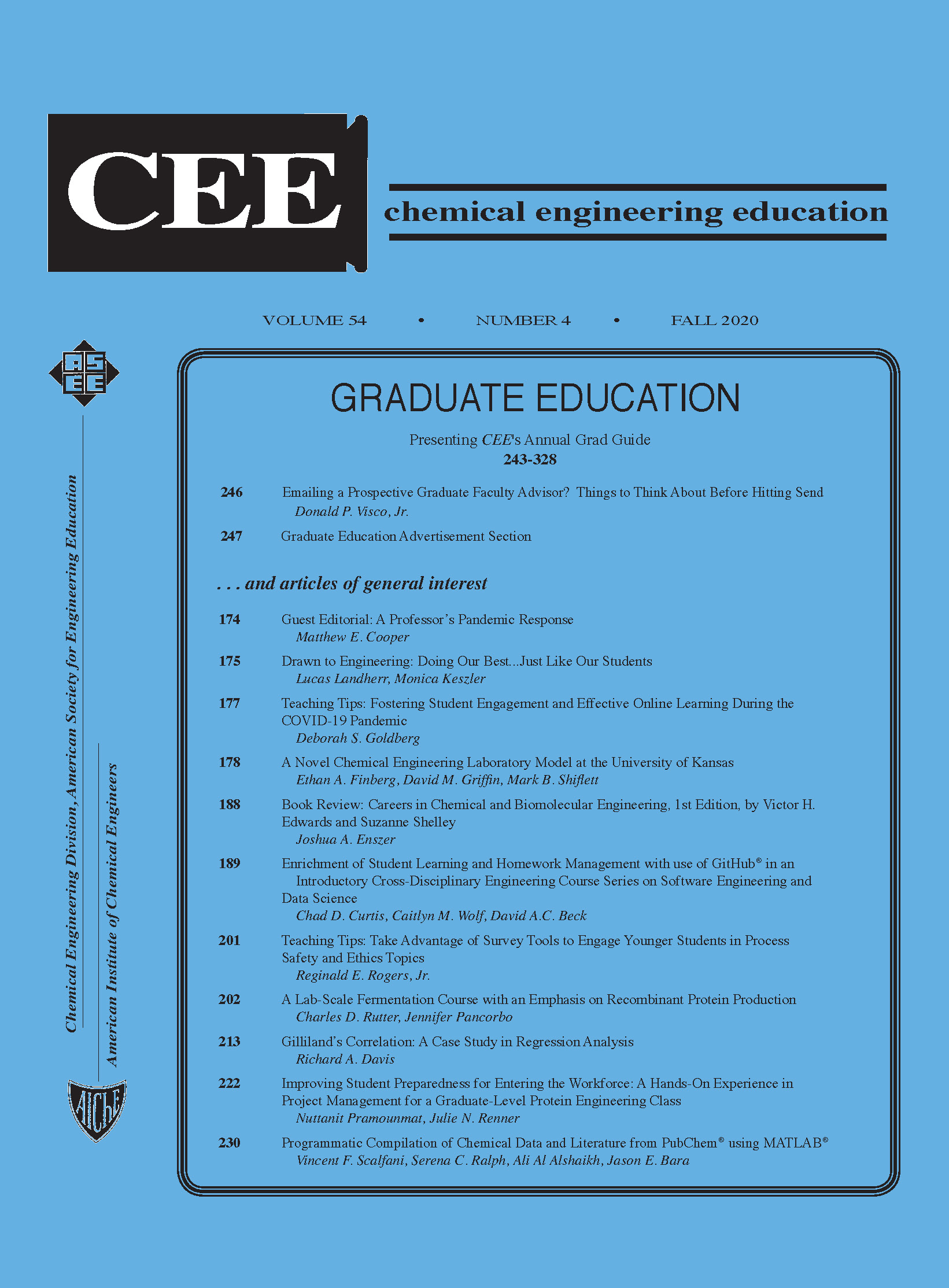Enrichment Of Student Learning And Homework Management With Use Of GitHub In An Introductory Cross-Disciplinary Engineering Course Series On Software Engineering And Data Science
DOI:
https://doi.org/10.18260/2-1-370.660-119316Abstract
GitHub is increasingly finding a role in academia to both encourage reproducible computational research and to foster a collaborative environment. We show that employing GitHub as an implementation of version control in engineering-related fields reinforces the 'design-build-evaluate' way of thinking and prepares students with skills they can use well beyond the classroom. Additionally, course features such as homework submission and feedback via GitHub enhanced student learning. Finally, we demonstrate that GitHub can be used to actively measure homework progress and teamwork.


